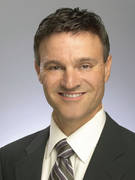Dr. John Norian was featured in the recent article on Sheknows.com. In this article they touch on what are the risks and fertility after cancer. Click here to read the full article.
Category: Cancer
Fertility Preservation Options: Egg Freezing
By Bradford Kolb, MD, FACOG Board Certified, Reproductive Endocrinology and Infertility Reproductive medicine has provided many wonderful options for women seeking to preserve their reproductive potential. From the advent of medications to stimulate egg production, to the development of in-vitro fertilization (IVF), many individuals have benefited from this technology. IVF is now commonplace and is...
Preimplantation Genetic Diagnosis (PGD) and Preimplantation Genetic Screening (PGS)
By Barry Behr, PhD, HCLD Introduction Preimplantation genetic diagnosis (PGD) and screening (PGS) refer to the procedures involved in obtaining genetic makeup of the embryo(s) prior to their transfer into the uterus. Genetic errors arise from deletions or insertions of genetic material, abnormal numbers of whole chromosomes or genes, and even from misplacement of a...
Preserving Reproductive Options in Oncology Patients
By Bradford Kolb, MD, FACOG Board Certified, Reproductive Endocrinology and Infertility Introduction Over the last several decades we have witnessed a significant increase in survival rates for oncology patients. Due to the use of combination chemotherapy and radiotherapy many young patients are now living long, healthy, productive lives. While combination regimens have been designed to...
Third Party Parenting
By Michael Feinman, MD, FACOG Board Certified, Reproductive Endocrinology and Infertility Since the very first IVF procedure, the theoretical ability to perform egg donation or gestational surrogacy has existed. It took doctors and society a few years to realize this fact and embrace the concept. Considering the wide variation in the legal status of egg...
Alternatives For Ovulation Induction and Superovulation: SERMs and Aromatase Inhibitors
By David E. Tourgeman MD, FACOG Board Certified, Reproductive Endocrinology and Infertility Introduction Ovulatory dysfunction is one of the most common causes for reproductive difficulty in otherwise fertile couples. Once successful ovulation is achieved, fertility is often restored. For many years, the first line of pharmacologic ovulation induction has involved the use of selective estrogen...
Fertility Treatment for Women over 40
By: Jeffrey Nelson, DO FACOOG It is no secret that fertility diminishes rapidly in your forties. USA Today ran an article this year stating that many women lack basic information about aging and fertility and mistakenly believe their fertility extends longer than it actually does. Unfortunately, after about age 35, a woman’s fertility starts to rapidly...
Fertility Drugs’ Link to Breast Cancer Hinges on Pregnancy, Study Says
By: Dr. John G. Wilcox, M.D. FACOG Study suggests fertility drugs may not pose a significant increased risk of developing breast cancer A recent study published by the National Institutes of Health recently reported their results of 3000 women studied comparing 1400 women diagnosed with breast cancer before age 50 and 1600 of their sisters who never...
Fertility Preservation in Cancer Patients
As frightening as a cancer diagnosis is, learning that you will never be able to have children can be equally devastating. In fact, just a few years ago, women undergoing cancer treatments had limited to no options at all for preserving their future fertility. Unlike men, who have long been able to bank sperm for...


